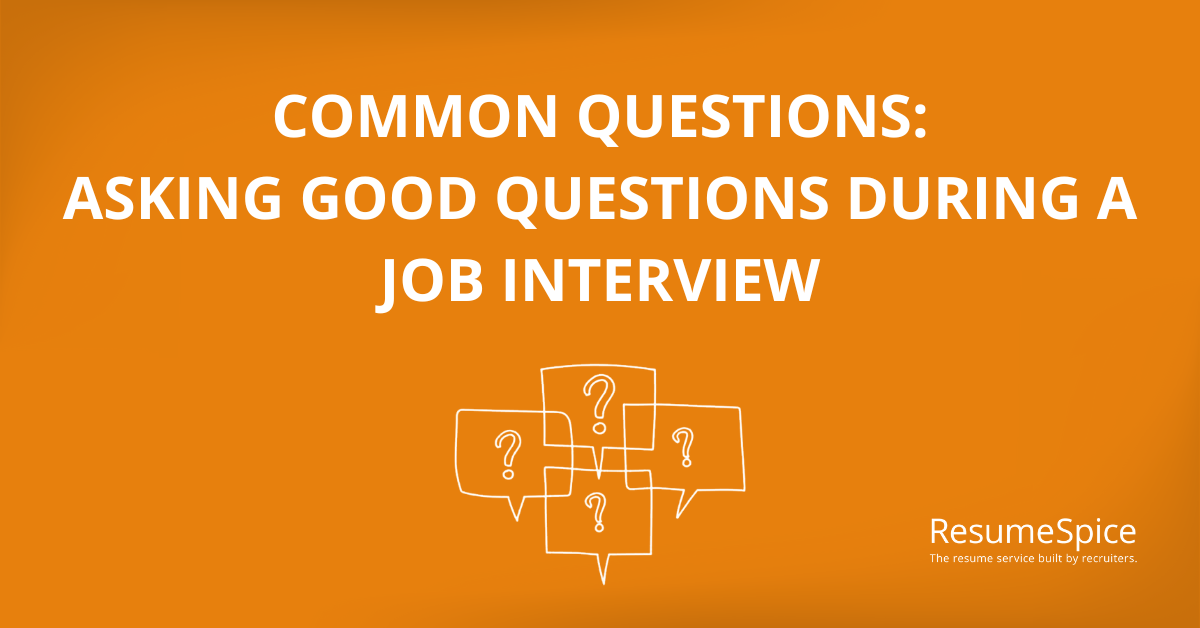50 Best Questions to Ask in a Job Interview

As Seen In:




When it comes to job interviews, most people focus on preparing their answers to common questions—and that’s important. But there’s another part of the interview that can make just as big of an impact: the moment when the hiring manager asks, “Do you have any questions for us?”
This is your chance to stand out. Thoughtful, well-prepared questions show that you’re genuinely interested in the role, curious about the company, and already imagining yourself as part of the team. They also help you make sure the job is the right fit for you—not just on paper, but in practice.
Below, you’ll find 50 of the best questions to ask in a job interview for 2025 and beyond. We’ll cover everything from role-specific questions to culture, growth opportunities, and even the future of work.
Key Takeaways
Asking thoughtful questions during an interview shows preparation, confidence, and genuine interest in the role.
Focus your questions on the job, company culture, team, and future opportunities—not salary or perks in the first round.
Personalizing your questions to the role and referencing earlier parts of the conversation makes them more effective and memorable.
Asking the Right Questions During a Job Interview
When the interviewer opens the floor, think of it as more than just “your turn.” It’s your opportunity to show confidence, curiosity, and genuine interest. Too many candidates skip this part—or ask the bare minimum—and miss a huge chance to leave a strong impression.
Your goals should be two-fold:
✅ Make sure the company is right for you: An interview isn’t just about proving you’re the right hire—it’s also about confirming that the company aligns with your values, career goals, and lifestyle. Asking good questions helps you understand how the role fits into the bigger picture, how the company supports work-life balance, and whether they’re investing in tools like AI or professional development.
✅ Show your value by asking smart, specific questions: Hiring managers notice the quality of your questions. Vague ones can come off as filler, but thoughtful, tailored ones show you’ve done your homework.
Remember that the key is to start conversations, not just check boxes. Avoid yes/no questions, and instead focus on topics like strategy, team dynamics, growth, and culture. Pay attention during the interview, and use what you’ve learned to ask follow-ups. For example, if the manager mentions an upcoming project, ask how success will be measured or what challenges the team expects.
When done right, this part of the interview flows naturally and helps both you and the employer feel more confident about a potential fit.
✨Tip: While you’re preparing your questions, make sure your answers are strong, too. Behavioral-style questions are almost always part of the process, so practice using the STAR method to tell clear, structured stories. For more guidance, check out How to Prepare for a Behavioral Interview: STAR Method, Common Questions, and Expert Tips.
🔶 Top Questions Focused on the Job
- What does success look like for this role in the first 90 days—and after the first year?
- Which projects would I be tackling right away?
- How does this role use AI, automation, or digital tools in daily work?
- Is this position brand-new, or am I replacing someone?
- What are the most important metrics for performance in this role?
- What challenges have people in this role faced in the past, and how could I get ahead of them?
- How does this position contribute to the company’s bigger goals?
- Are there opportunities to improve or modernize processes in this role?
- How do you see this role changing as the company grows or as new technologies are introduced?
- What skills separate someone who’s good at this role from someone who’s great?
🔶 Best Questions Focused on the Company
- What are the company’s biggest priorities right now, and how does this team help achieve them?
- How is the company planning for growth over the next few years?
- How are AI and automation shaping your business strategy?
- What steps is the company taking toward sustainability or social impact?
- How do leaders here define long-term success beyond just revenue?
- What excites you most about the future of the company?
- How do you keep employees informed about changes or new initiatives?
- How does the company stay competitive in a fast-changing industry?
🔶 Practical Questions Focused on the Interviewer
- What brought you to this company, and what’s kept you here?
- How has your role grown or shifted since you joined?
- What’s your favorite part about working here?
- If you could improve one thing about your job or the company, what would it be?
- What project or initiative are you most looking forward to this year?
- How do you personally balance work and life here?
- What advice would you give someone stepping into this role for the first time?
🔶 Smart Questions Focused on the Team
- How would you describe the team culture in a few words?
- What are the team’s biggest strengths—and areas for improvement?
- How does the team collaborate with other departments or across time zones?
- Are mentorship or peer-learning opportunities built into the team?
- How does the team celebrate wins or milestones?
- What tools or platforms do you rely on most to collaborate effectively?
- How does the team handle challenges or differences of opinion?
🔶 Interesting Questions Focused on the Culture
- How does the company support hybrid or remote employees so they feel included?
- Can you share an example of how DEI (diversity, equity, inclusion) shows up in daily work?
- What types of learning and development opportunities are prioritized here?
- How does leadership stay transparent and keep communication open?
- What traditions or team-building activities help bring people together?
- How does the company support employee well-being and work-life balance?
- How do you make sure workloads are realistic and prevent burnout?
- What’s different about working here compared to other companies you’ve worked at?
🔶 Best Questions About Future Opportunities
- What career paths have others in this role pursued after 2–3 years?
- How often do internal promotions happen, and what makes someone stand out for them?
- Are there opportunities to take on stretch projects or cross-team assignments?
- How does the company recognize or reward top performers?
- Will there be opportunities to attend conferences, trainings, or industry events?
- How does the company encourage employees to stay ahead of new technologies?
- Are there formal mentorship or leadership development programs?
- How do you see employee roles evolving as AI and automation reshape the industry?
✨Tip: Questions about salary, benefits, and pay transparency matter, but timing is everything. Save them until later in the process, when the employer is seriously considering you. To prepare for those conversations, check out Salary Expectations and Pay Transparency: A Guide for Today’s Job Applicants.
🔶 Questions Regarding the Next Steps
- What are the next steps in the interview process?
- Is there anything from my background you’d like me to expand on?
- Would it be helpful for me to provide additional materials or examples of my work?
- What’s your ideal timeline for filling this role?
🚨Interview Questions You Should Avoid
Not every question helps your case. Some topics—like pay, time off, and promotions—are absolutely important, but bringing them up too early can make it seem like you’re more focused on perks than on proving your value. Save those for later in the process, once the company has signaled serious interest or extended an offer.
Here are examples of questions you should avoid in the first interview:
- What will my starting salary be?
- How soon can I take vacation days?
- How quickly do people get promoted here?
- What’s the bonus structure like?
- Do I get my own office?
- Who are your main competitors? (Easily researched ahead of time.)
- When will you make me an offer?
- What’s the worst part about working here?
These questions either come off as premature, negative, or easily answered with a quick online search. Instead, focus your energy on questions that show curiosity, professionalism, and genuine interest in how you can contribute. Then, once you’re further along in the hiring process, it’s absolutely appropriate—and expected—to discuss salary, benefits, vacation, and growth opportunities in detail.
Summary
Job interviews aren’t just about answering questions—they’re also about asking the right ones. By preparing smart, specific questions, you’ll learn more about the role, team, and company while also proving that you’re engaged and forward-thinking. Avoid rushing into topics like salary or vacation in the first interview, and instead focus on areas that show curiosity and alignment with the company’s goals. Done well, this approach helps you stand out as a confident, prepared candidate and ensures you’re choosing a job that truly fits your career goals and work-life balance.
Q&A
Q: Why is it important to ask questions in an interview?
A: Asking questions shows genuine interest, preparation, and confidence. It also helps you evaluate whether the role, team, and company culture align with your career goals and work-life balance expectations.
Q: How many questions should I ask in an interview?
A: Plan to ask at least three to five thoughtful questions. This gives you enough variety in case some get answered earlier in the conversation and shows you came prepared.
Q: What are the best types of interview questions to ask?
A: The best interview questions focus on the role, team, company culture, and future opportunities. For example, asking “What does success look like in this role during the first 90 days?” or “How does the company support professional development?” demonstrates curiosity and long-term thinking.
Q: Are there interview questions I should avoid?
A: Yes. Avoid asking about salary, vacation days, or promotions too early in the process. These topics are important but are best saved for later stages of the hiring process. Also avoid negative or impatient questions, such as “When will I get promoted?” or “What’s the worst part about working here?”
Q: How can I make my interview questions more effective?
A: Personalize them. Reference something the interviewer mentioned earlier, or connect your questions to the company’s current challenges or goals. For instance, if they mention using AI tools, you could ask, “How do you see AI shaping this role in the next year?”
Looking for Extra Support as You Interview Prep?
Our interview experts are here to help! From professional resume writing services to professional interview prep to career coaching, ResumeSpice is equipped to assist you in achieving your career goals.







